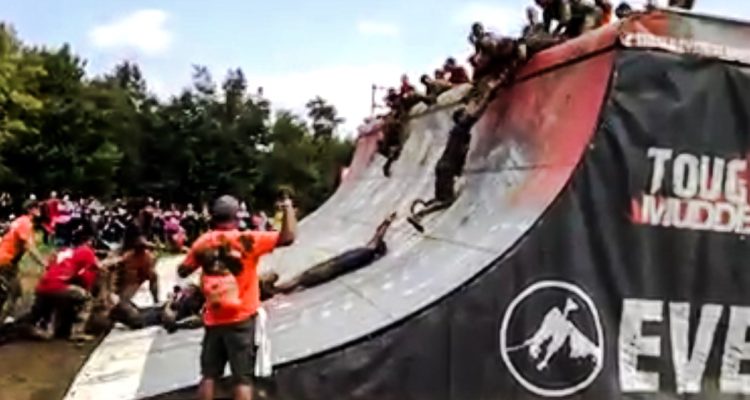Mike Anderson didn’t know what to do after graduating from John Marshall High School, and that wasn’t the school’s fault or his parents fault’ or his friends’ fault.
“Naw,” Anderson admitted. “It was my own damn fault. I was a 20-year-old kid struggling through college and struggling through life. ”
But he wanted a purpose. He wanted to do something. Anderson didn’t know what it was, though, so his big idea was to join the Army Reserves with a couple of friends. It was only the Reserves, he thought. It was weekends, and two weeks in the summer camping out and playing soldier, he thought.
The possibility of becoming a hero never entered Anderson’s mind.
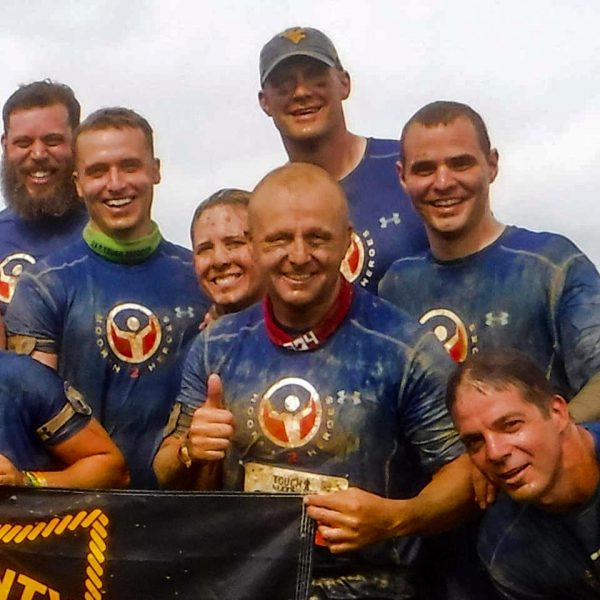
And then the United States military initiated Operation Desert Storm in reaction to the Iraqi military’s invading Kuwait, and unexpectedly reserves were trained and deployed to serve in support roles in Saudi Arabia. Anderson was the only person transferred away from his West Virginia-based unit to Greensburg, Pa., and then his new unit was deployed to the Middle East.
Housed in a warehouse-type building filled with hundreds of cots, Anderson and his battle buddies were stalled awaiting the equipment that was sent by sea instead of by air. All he and his comrades had with them was what they had packed away for their flight abroad.
And then one guy brought out the game Trivial Pursuit he had stowed away, and a group of nine soldiers engaged in the game six days after their arrival.
And that’s when a mouse raced by.
“I was sitting on my cot one evening, and so were seven others pretty much in the middle of that warehouse. I saw this mouse over my left shoulder as it ran across the floor. I just reached down, picked up a boot and swung it around my left shoulder,” he recalled. “My buddy Frank got up, and he said, ‘Hey man. I think you hit that mouse.’ He walked over and I followed.”
“He picked up the mouse, and that’s when a Scud missile hit in the middle of the warehouse,” Anderson said. “I didn’t hear anything. I only saw a flash of light. I heard screaming. The shirt I was wearing was completely blown off my body. My sweatpants were soaked with blood. I just knew something bad had happened.
“Then someone got me to a Saudi cop car, and then I was transferred into an ambulance. And then, a couple of days later, I woke up in a hospital, and that’s when I found out that everyone I was playing that game with was killed, and so was my buddy Frank. That’s also when I realized I couldn’t move my foot or my toes.”
One doctor working in that Middle East medical facility soon asked Anderson what he wanted to do about his badly injured left leg.
“He said I had a decision to make. He said there could be some rehab I could do, but that it was never going to be the same. He also said I could have it amputated, and that I could be fitted for a prosthetic. He said that would give me a better quality of life.
“I looked at him and said, ‘Dude, you’re the doctor. You tell me what you would do.’ He said he would amputate so that’s what my decision was,” Anderson continued. “Gradually, I returned home to Marshall County, and I was treated like I was a hero. But I didn’t consider myself a hero at all. I appreciate those words and what they mean, but I was just a kid from Moundsville who joined the reserves.”
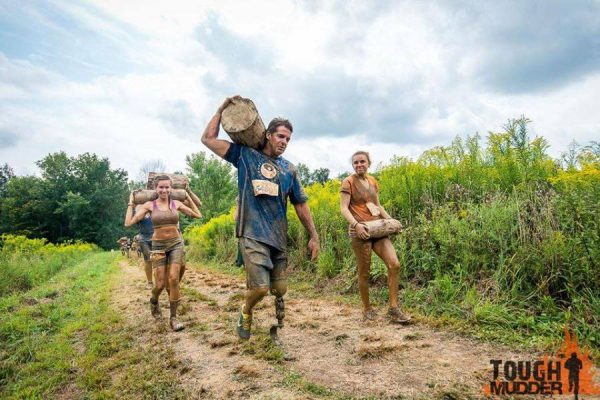
Once the Flags stopped waving and the cheers were squelched again by a lack of direction in life, Anderson found himself lost again.
“I struggled with my leg, but I went on to work construction and did the things that I could, but I was told I would never run again because at that time the prosthetics weren’t made to allow above-knee amputees to be able to run,” he explained. “After I had kids it really bothered me that I couldn’t play soccer with my daughter, and I wasn’t able to keep up with able-bodied people.
“The hardest part was the mental part, and it was also difficult to keep hearing people call me a hero because I really didn’t feel I was living up to that,” he continued. “Relationships were hard for me to deal with. I really got down, and I wasn’t able to explain why. Depression and PTSD affected me and I never really had much passion for anything, and I didn’t know what to do with my life. That’s the way it was for me for 24 years. I was lost.”
That is, until the past year, and Ellen Degeneres played a role.
“It was right after I experienced another failed relationship, and I was at home watching the ‘Ellen,’ show and she had a guy on her show by the name of Noah Gallaway. He was the guy who was on ‘Dancing with the Stars’ and not only did he lose his left leg like I did, but he also lost his left arm up to the elbow,” Anderson remembered. “He was able to run because of the prosthetic he had, and I wanted to run again. At that moment I decided that I wanted to push myself to accomplish some of things that he had.”
Soon after that episode, Anderson met Wheeling resident John Reasbeck because they each had daughters who competed for a local youth soccer program. Reasbeck has been a Tough Mudder participant for the past couple of years, and he convinced his new friend to join him in the competition.
Reasbeck is also a member of a local group called, “Hoorah for Heroes,” a group of folks who train with and encourage each other while preparing for similar competitions throughout the Upper Ohio Valley.
“I then found myself on that starting line at the Tough Mudder, and the only thing I kept thinking to myself was, ‘What have I gotten myself into?’ But there was something about doing that race. Something that really affected me,” Anderson admitted. “It changed how I thought of myself and how I thought about my disability. It really hit me at that point. I knew I could overcome those obstacles.”
Except for the one known as, “Everest.” Anderson’s prosthetic became caked with mud and was malfunctioning, but even after fixing it on the course, he was unable to get it over the wet, plastic structure that looked more like a skateboard ramp than something in the middle of a race.
After trying two times, this veteran was unable to gain enough speed to propel him to the top, and for the first time during that day he considered just walking past it to continue.
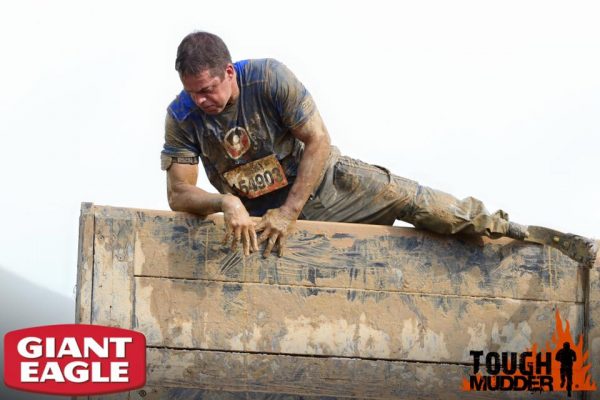
“But that was when my ‘Hoorah for Heroes’ teammates decided they had a different idea. They formed a human ladder so I could climb up to, and once I did, it was John at the top who reached down and pulled me up that damn thing,” Anderson said. “That was an emotional moment. That taught me that it was about teammates and having people in your life that can help you when you are struggling with obstacles in your life. That changed my life.
“The reaction that people had seeing me also had an impact on me because it allowed me to know that I could defeat the limitations in my head, and that I could have a positive influence on others,” he said. “I thought maybe I could start to live up to that ‘hero’ word that people would throw my way.
“I overcame this thing in my mind that made me look at my disability as a negative. I knew then that I could use it to inspire others. It filled a void in my heart and helped heal me. It gave me a sense of purpose … a passion. It set me off on a new journey.”
And Anderson’s first stop involved a young Marshall County child he read about one day. Isaiah Leasure is a sixth grader who has been diagnosed with spinal muscular atrophy, but that did not stop him from scoring a touchdown in September for the Moundsville Trojans.
“Isaiah is confined to a motorized wheelchair, so he inspired a lot of people that day, and he was doing the same thing I was doing,” Anderson said. “He may not have realized it at the time, but the fact that he wasn’t allowing his disease to take his life is very powerful for a lot of people.
“Then I found out that he was being transported in a pickup truck and that his mom is also confined to a wheelchair. I also found that they didn’t have any access to a vehicle with the lifts and room that’s necessary to transport them. That’s when it hit me that I should do a 5K event to help raise funds so that family could get the vehicle that they desperately needed.
“I only had six weeks to get it all together with the help of my friends, and I was blown away the day of the race. Just blown away. The community came together and we had 367 people, and we raised $18,000,” he said. “It’s still not enough for the van, so we are still looking for the best vehicle for the Leasure family, and we are still raising some funds.”
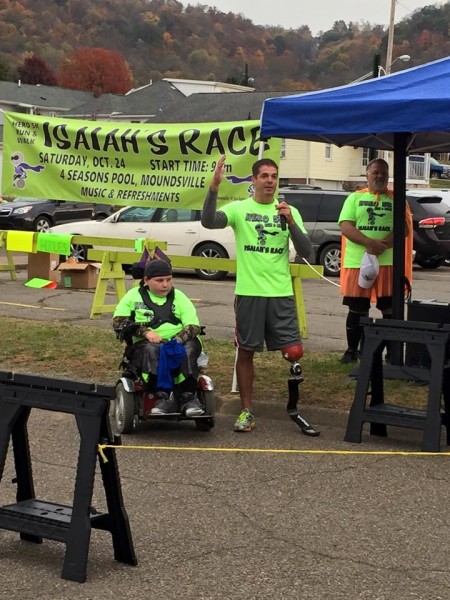
Anderson has attracted additional help since the “Isaiah’s Race” event, and he is confident that he will soon acquire the van for the sixth grader and his family, but the large crowd of participants served as yet another sign.
“Those kinds of things restore your faith in your community,” he said. “You see on the negative news all the time about the pills and the thieves, but if you really look, you realize that there are thousands and thousands of good people who live here.
“I’ve also learned that there’s always someone out there who needs your help, and that there’s always someone out there deserving of something like the gift this event will give Isaiah and his family. That’s why I am hoping to make this an annual event,” Anderson continued. “I keep telling people that doing this race is part of my healing process, and I don’t know who benefits more from it because it’s definitely allowed me to see things in a much different light.
“It’s let me heal. And I’m not going to quit. This isn’t the end.”
(Photos made available by Mike Anderson)


